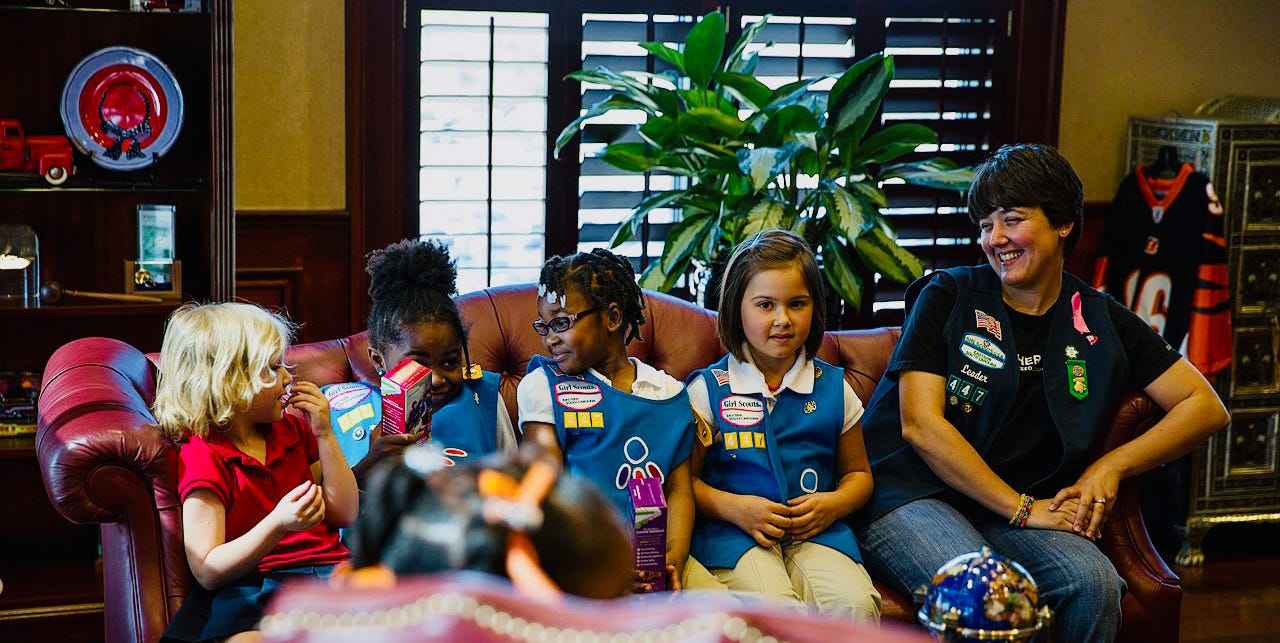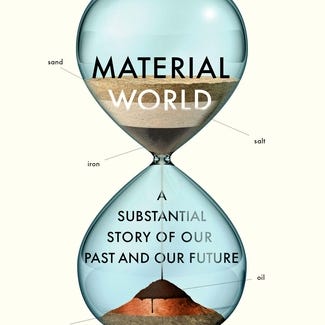Spontaneous Orders Aren't Magic
Voluntary associations depend on people who step up and let others free ride on their efforts.

When I read the endless commentary about how Americans are lonely, lack social connections, feel alienated and purposeless—and how this isolation leads to self-destructive online living, political polarization, and general craziness—two thoughts occur to me.
The first, which I discussed in my most recent post for paid subscribers, is that we may be discounting the discontent, disagreement, and personal angst of the past. Communications media change and that changes how we know other people’s thoughts. But how much do inner lives themselves change over time? Plenty of people were deeply unhappy in the past.
In an upbeat description in Democracy in America, Alexis de Tocqueville famously recorded the American tendency to create associations.
Americans of all ages, all conditions, all minds constantly unite. Not only do they have commercial and industrial associations in which all take part, but they also have a thousand other kinds: religious, moral, grave, futile, very general and very particular, immense and very small; Americans use associations to give fêtes, to found seminaries, to build inns, to raise churches, to distribute books, to send missionaries to the antipodes; in this manner they create hospitals, prisons, schools. Finally, if it is a question of bringing to light a truth or developing a sentiment with the support of a great example, they associate. Everywhere that, at the head of a new undertaking, you see the government in France and a great lord in England, count on it that you will perceive an association in the United States.
Tocqueville’s discussion is worth reading in full, even if you’ve read it before. He anticipates some of the tensions arising from the growth of large, professionally managed enterprises.
But Tocqueville’s isn’t the only perspective on the state of American life in the early 19th century. Henry David Thoreau’s Walden, with its famous declaration that “the mass of man live lives of quiet desperation,” appeared less than 20 years after Democracy in America. Where Tocqueville saw flourishing community, Thoreau saw meaningless activity that was worse than slavery. (Yes, worse than actually existing slavery in the South.) Same data, different conclusions. Same culture, different takes.
My second reaction is more pragmatic. If Americans have fewer opportunities for meaningful connections today, maybe that’s because not enough natural leaders are stepping up to build and maintain the necessary social institutions. They’re too busy with their jobs, their kids, their travels, their social media feeds.
When I was a Girl Scout (grades 2 and 4-8), every year there was a crisis that endangered our future. Would someone’s mother agree to be the troop leader next year? It was tough to find a volunteer willing to do the job week end, week out, even before you got to the skills needed. This was from 1967 to 1975, when most of our mothers were still housewives and very few had full-time jobs. Yet filling that crucial role was still a challenge. (As you can see from my chronology, one of my Brownie years went leaderless.) There are more adults per child nowadays but also more claims on adults’ time and attention.
Whatever their purposes, Tocquevillian associations work because a critical number of people let others free ride on their efforts. Maybe those people take pleasure in the activity. Maybe they like the limelight. Maybe they feel a sense of obligation. Or maybe they just decide that if they don’t do it, it won’t get done.
“No good deed goes unpunished,” a high-maintenance homeowner in our condo association tells me every time I deal with one of his slightly barbed questions, complaints, or problems. (I resist asking him whether that’s a threat.) Our HOA has only 14 units and, except for the financials, we manage everything ourselves. Fortunately, we have enough capable and congenial volunteers. But not everyone is willing or able to pitch in. Some people assume that’s for suckers.
When I read David Brooks opining on how Americans need more “moral organizations,” I can’t help wondering what low-profile, voluntary efforts he partakes of himself. Does he ever abandon his public persona and just help out? (I shouldn’t pick on Brooks, although he’s irresistible. You could ask the same question of many chin pullers.)
It’s all well and good to found an Aspen Institute project devoted to “weavers” who create connections in their local communities. But writing a book, giving a TED talk, or rounding up “community leaders” at a national conference is very different from working yourself as a volunteer to build or maintain a small-scale local organization without a professional staff. You learn different things. You behave differently. You meet different kinds of people—and even in a leadership role you meet them as equals.
Over time, you may also have a more practical and thus more meaningful effect on the larger culture. (At least that’s what I tell myself.) Culture is a spontaneous order and no one can’t fix it from above. All you can do is behave the way you want it to go and hope others do as well.
I’m a fan of Monica Guzmán, one of the stars of this video. (I interviewed her here.) But hearing people talk grandiosely about what each does “as a weaver” cracks me up. In the all-volunteer community that I currently lead what we do as weavers is weave. And dye. And sometimes, for the truly hard core, spin.
Upcoming Appearances
Saturday, October 7, 1:00 pm, Vista, CA: Fiber Arts Fiesta at Antique Gas & Steam Engine Museum (AGSEM), book talk and signing. There is a $10 entrance charge for the festival and museum.
Monday, October 16, 6:00 pm, Washington, DC: Conversation on the culture of progress with James Pethokoukis, moderated by Katherine Mangu-Ward, Reason, 1630 Connecticut Avenue. Reception starts at 6:00, program at 6:45. More details to come.
Tuesday, October 17, Washington, DC: Works in Progress panel and evening reception, details to come.
Wednesday, October 18, Washington, DC: R Street Institute Real Solutions Summit, “The Case for Optimism in the Age of AI,” panel with Adam Thierer and James Pethokoukis
Thursday, November 30, London: Works in Progress reception, exhibit, and conversation with Ed Conway on materials in a digital age, details to come.
I’ll be in London for about a week and welcome other opportunities while there.



Two examples come to mind:
1) We have friends who organize workouts on the beach 1-2 times a week in the summer. They bring hurdles and rings and ladders and set up elaborate courses. It's open to anyone. Sometimes three people show up, sometimes a dozen. it builds community and those of us who do it greatly appreciate it.
2) My wife and I entertain a lot to bring people together IRL. There's no purpose to it other than we like being with the people we invite and seeing them enjoy themselves.
robertsdavidn.substack.com/about
My single-bullet theory is that a significant causal factor in the demise of associations was the City Beautiful movement that originated (or at least burst onto the scene) at the 1893 Columbian Exposition. Budding 20th century urban planners wanted people to live far from their workplaces. Commuting consumed time. People lived far from business associates who would have been natural friends in early periods. I grew up in a small city where everyone lived, worked, and worshiped within a mile of one another. Hence, you tended to know people in multiple ways and saw them at differing hours. I'll readily admit borrowing much of my thinking from Jane Jacobs, though she thought her theories were primarily applicable to big cities. (I am planning to write a piece on this soon.)